***
An Islamic sect who believe in a metaphorical ‘John the Baptist’ figure are still suffering violence and abuse after decades of persecution. They believe that the Messiah has already returned in the form of Jesus. Mainstream Sunni Muslims denigrate the sect for their beliefs.
Hassif Mirza, an Amahdiyya worshipper of the Fazal Mosque in London which dates back to 1924, says that the objections to his brand of Islam proliferated as a result of Fatwas issued by Pakistani Mullahas in the 1950’s.
Since then, hardly a year has gone by without a threat or violent attack on the Amahdiyya with disastrous consequences. Death and destruction are being wrought on worshippers and their property in Pakistan, Afghanistan, the Philippines and, to a lesser extent, Bangladesh.
But what has India’s Punjab got to do with the Amahdiyya and how has Bangladesh become involved, a ‘secular’ country that constitutionally doesn’t favour any religion or belief?
Qadian is a small town of Western Punjab of around 20,000 people and was home to Mirza Ghulam Ahmad founder of the movement. In 1889 he claimed that he was the Mujaddid , a prominent Muslim who appears at the turn of each century as a prophet, teacher or scholar. Amahdiyya believe that he was the ‘Promised Messiah’ and the awaited ‘Mahdi’ expected by Muslims in the end days.
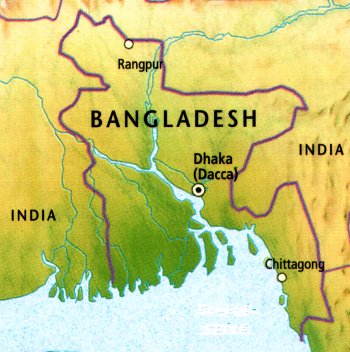 The belief spread from Qadian with the religion radiating outwards from the small non-descript town of flat roofed brick and white plastered buildings when India was partitioned in 1947. The Amahdiyya among other Muslims left for the safety of sympathetic countries, leaving the town to be overtaken by Sikhs.
The belief spread from Qadian with the religion radiating outwards from the small non-descript town of flat roofed brick and white plastered buildings when India was partitioned in 1947. The Amahdiyya among other Muslims left for the safety of sympathetic countries, leaving the town to be overtaken by Sikhs.
Although elements of the sect remained in India many Amahdiyya moved to Afghanistan, Pakistan and the Philippines. Other Amahdiyya spread to East Pakistan which was to become Bangladesh.
There has always been considerable anti-Amahdiyya sentiment from the Sunni majority of these countries, but recently the discrimination has led to grave consequences. Reports indicate that the former leader of the Jamaat Islamist political Maolana Maudud led riots against Amahdiyya in Lahore as long ago as 1953.
Since then there has been a catalogue of incidents and a sustained campaign of terror aimed at Amahdiyyan worshippers. Some of the most violent and bloody attacks resulted in over a hundred deaths in Pakistan earlier in 2012. Abdul Quddoos, school teacher died of police torture in March and in May 86 Amahdiyya followers were killed by a bomb attack on a mosque in Lahore.
Bangladeshi Amahdiyya has not escaped the aggression by an extreme religious organization called Khatme Nabuwat influenced by the perpetrators from the neighbouring country of Pakistan. Amahdiyyas believe the root of the problems stem from Jamaat Islami, a radical Islamist political party, fighting for a theocratic government.
The first killings of a Bangladeshi Amahdiyya Nationals were that of Usman Ghani Sahib and Abdur Rahim Sahib who were murdered because of their faith in 1963. Others were to follow. Since then
A directive from Mecca in 1975 has only served to exacerbate the attacks and worsen discrimination. 140 delegations of Muslim countries and organisations from all over the world issued the following statement about Qadianism or Ahmadiyyat:
‘ It is a subversive movement against Islam and the Muslim world, which falsely and deceitfully claims to be an Islamic sect; who under the guise of Islam and for the sake of mundane interests contrives and plans to damage the very foundations of Islam.’
Killings continued unabated. In 1999 the Daily Star newspaper reported that:
‘Seven people were killed and 34 others injured in a bomb attack on an Amahdiyya mosque in Nirala residential area under Khulna Sadar police station’ after a mosque attack’.
A 2001 article reported that:
‘an Amahdiyyan Mosque in town Sayyedwala, District Sheikhupura, about 100 Km west of Lahore, was attacked and destroyed by a violent mob of hundreds of orthodox Muslims. The incident occurred during the evening when Amahdiyya were watching the live Satellite transmission of their annual convention held in Germany. The mob surrounded the two houses where Amahdiyya gathered and started chanting anti-Amahdiyya slogans full of abuses. Soon some of them headed toward the Amahdiyya Mosque, ransacked and destroyed it completely, and set it on fire. Instead of providing protection to the small number of Amahdiyya in town, police locked them up in the name of protective custody and did nothing to disperse the mob’.
In 2003 the leader of Amahdiyya Muslim Jamaat was killed dying from injuries inflicted by another Imam from a neighbouring Sunni Mosque and several of their followers. The report read that:
‘Shah Alam, president of Raghunathpurbag Ahmadiyya Muslim Jamaat succumbed to his injuries when he was being taken to hospital, the attackers also ransacked the doors and windows of the mosque of Amahdiyya Jamaat and house of Md Shah Alam’.
Although there has been no officially recorded death due to religious persecution of the sect since 2003, there have been several serious incidents that have left Amahdiyyas seriously injured or with considerable damage to property.
Amnesty International reported further violence in 2004 after:
‘an attack on a place of worship’ leaving at least 11 Amahdiyya with serious injuries. Their warning was a foreboding of more terror to come : ‘Islamist groups have now threatened to carry out the attacks more frequently and without prior notice’
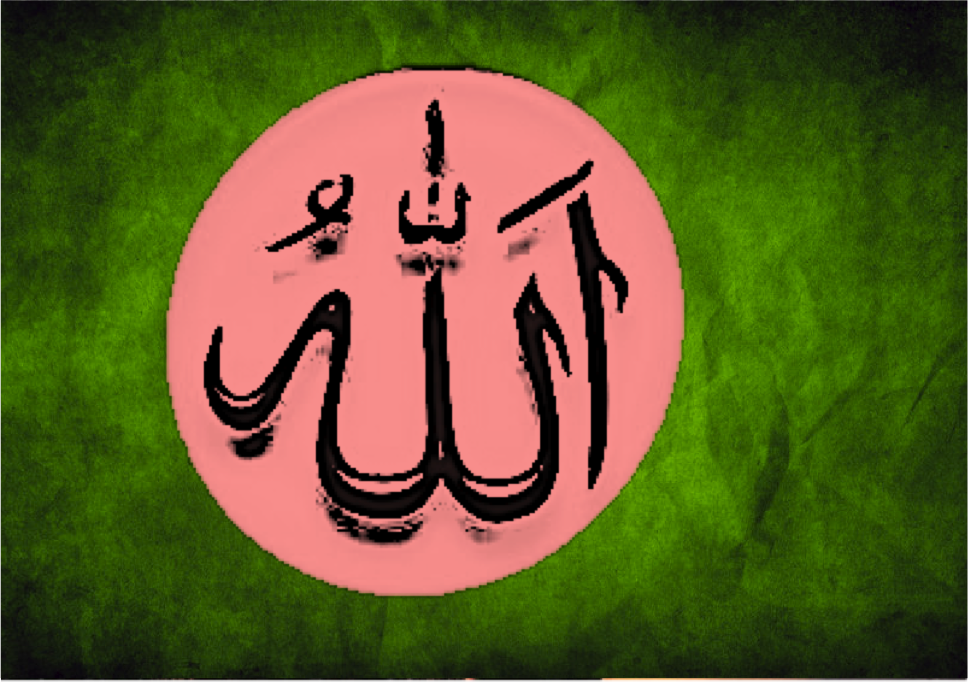
Bangladesh is a country of 146.5 million, 90% are Sunni Muslim. Amahdiyya number only 100,000, less than half of one per cent of the Bangladeshi Islamic society. But, in the words of Feroz Alam an Amahdiyya missionary to Bangladesh based in South London, ‘they do not accept themselves as a minority’ because they still see themselves as Muslim.
Following the unrest in 2004 the government bowed to the pressure of the Sunni majority by banning Amahdiyya books, magazines and leaflets and any further publications. Human rights observers criticized the banning of books seeing this as an attack on civil liberty.
A Bangladesh home ministry statement said the ban:
‘was imposed in view of objectionable materials in such publications that hurt or might hurt the sentiments of the majority Muslim population of Bangladesh Human Rights Lawyer Sultans Kamal see important principals at stake, she made this comment ‘there is a tendency for a monolithic mono-religious strain being established, in the political atmosphere this is one of the cases, there will be many more if not stopped now’.
Perhaps this is the thin end of the wedge as other religious concerns look on and wonder what would happen if the government were to become a theocracy in the upcoming elections. Hindus and Christians are among other religious minorities in Bangladesh. The main opposition to the present Awami League government is the Bangladesh National Party (BNP) supported by the Jamaat Islami party.
Since Sultana Kamal made this observation, Amnesty International released a press release in 2006 which put 22 Amahdiyya families on Human Rights watch, under the threat of death which stated ‘The lives of 22 Amahdiyya families living in Dhaka, Bangladesh’s capital, are in grave danger after members of the Islamist group International Khatme Nabuwat publicly threatened them with death.
Amnesty’s press release continued ‘By targeting the Amahdiyya community, Islamist groups are believed to be attempting to force the government to yield to their political demand for the introduction of more stringent Islamic law in Bangladesh. The groups are hoping to obtain mass support from poor and disenfranchised sections of society, whom they feel they could influence by appealing to their religious beliefs’
But the vociferous few representing the Muslim majority did not stop there, putting pressure on the secular government to go further and ban the Amahdiyya altogether. The BBC reported in a 2005 newsreel the fundamentalists’ threat of blood in the streets. An ultimatum issued said there would be blood shed if the Amahdiyya were not outlawed by the end of the year. They wanted all Amahdiyya declared as non-Muslims, branded as infidels and heretics, otherwise they would lay siege to their mosques.
Traditionally a tolerant secular country Bangladesh has not seen the violence manifested in the decade before, or to the extent seen in Pakistan but the signs and undercurrents are palpably discernible with radicals continue calling for the lives of the Amahdiyya, who look over their shoulders to recent events in Pakistan. They are certain to feel insecure about their future particularly if the prospect of a Bangladesh National Party in power.
In 2007 there were threats to blow up a mosque Khulna and in 2008 an Amahdiyya family was forced to leave their village home in Kashia following constant harassment by religious fanatics. The family were forced to move to a town in a different district following a fatwa by the local Imam who told the village to shun the family and that anyone found communicating with them would be fined and ostracized by the community. The Moazzem family left after being told that they would be killed at dead of night if they did not convert to Islam.
Between 2008 and 2011 further religious discrimination took place in the form of radical Islamists obstructing the burial of an Amahdiyya, forcing the mourners to bury the body elsewhere. The Khatme Nabuwat religious fundamentalist’s vendetta is plain to see claiming on their website that ‘Qadianism (Ahmadism) is a pseudo religion whose leadership exploits its members socially, psychologically and financially. The leaders of this group have been able to maintain their hegemony over their ordinary members through treachery, plagiarism, cruel and inhuman discipline. This group aims to steal the identity of Islam by misinterpreting the original sources of Islam. The purpose of this site is to expose the tactics and logical fallacies of this group. The group are based in Lahore Pakistan where the recent massacres of Amahdiyya have taken place. Feroz Alam from the Fazl Mosque in South London (London’s first mosque) is an Amahdiyya missionary to Bangladesh believes that khatm-e-nubuwwat is linked to Jamaat Islami the BNP’s closest political ally.
In 2010 after the government gave the Amahdiyya annual convention the go ahead but the police gave in to a protest by the Khatme Nabuwat Movement setting out conditions only allowing the event to continue on the condition microphones weren’t used and the meeting was brought to a close early.
‘Our democratic rights have been taken away due to threats from some madrasa people,” said Mir Mobasher Ali, a member of the convention organising committee’.
The following year protestors forced the cancellation of the meeting and saw further religious discrimination when police prevented a mosque being built in Tangail in support of local villagers Assistant superintendent of police Md Sajahan said:
‘members of the Ahmadiyya community at Chantara in Ghatail started to build a mosque in the village but that other villagers stopped the work. On hearing about the matter, the police from Ghatail police station went to the spot and removed both parties’ he added.
Amahdiyya followers face an uncertain future. A Sunni Muslim admitted living in Dhaka ‘now days an Amahdiyya would feel vulnerable just going about everyday life’. Bashiur Rahman, Central Missionary and a local leader of Amahdiyya Muslim Jamat Bangladesh in Dhaka said
‘Generally Amahdiyya people face struggles in their everyday life, such as freedom of expression and burying our dead. Muslims do not want to mix with us because of the stigma of Amahdiyya.’
Mr Raham pointed out that the government and local authorities support the Bangladeshi Amahdiyya which has prevented the kind of activities that are happening in Pakistan and elsewhere but Sunni opposition still exists.
Feroz Alam, missionary, says that the truth of the matter is that Amahdiyya do not feel 100 per cent safe:
‘there are elements terrorizing the religious community, in some places, not all but it is not uncommon. Some children are bullied at school when classmates find out their beliefs, but only in some places. And some jobs are lost when bosses find out they are Ahmadis. Same with the police in some places they go along with what the fundamentalists want and makes the situation worse’.
According to Mr Rahman, children are often singled out at school ‘young children sometimes face harassments in their institutions because of their identity’ his personal experience includes that of his son. Bashuir Rahman goes on to say:
‘My son who is studying in Rajshahi medical college is also a victim of identity crisis, student political groups badly behaved with him and regarded him as outcast’.
The Dhaka based Amahdiyya leader expects Bangladeshi government to uphold article 41 of the constitution which falls in line with article 9 of the Human Rights act expressing the right to ‘Freedom of Thought, Conscience and Religion’.
‘We are expecting that present government to be conscious of our issues and would also like also the international development and human rights agencies to be more proactive concerning our situation so that we can live and express our thoughts and practice our religious activities and rituals openly after, we are all Bangladeshi, we are all Muslim, though we have separate religious belief’, said Bashuir.
He goes on to say that fundamental human rights are being breached by curtailing their religious freedom.
‘We have got political rights as we participate in national elections and are given a national identity. Nevertheless, we are deprived of citizen rights, our human rights.’
Jannat Begum an Amahdiyya woman sees things at a very personal level, she met Muqbhul Hossain when they were both students at Chittagong University. They decided to marry but she soon realized how much of a barrier being an Amahdiyya caused. Although the family initially acceptedthe situation, her in laws accused her of preventing Muqbhul from his responsibilities towards his parents. Jaanat recalls:
‘ I cut off all my family ties to give everything to my husband, for his welfare, but his loyalties were to his parents, and our relationship broke down because they blamed me because I am an Amahdiyya.’ Jaanat is now divorced and faces an uncertain future because of inherent religious discrimination. Jaanat Begum finishes by saying: ‘If we Amahdiyya were more accepted in society, we would have a better future, I would still be married.’
But on the question of the country’s politics, Feroz Alam is quick to criticize members of government ‘MP’s ‘claim to be secular but when it hampers political interests they go along with the majority’. Khatme Nabuwat Movement represents a vociferous minority capable of motivating mass protests that lead to violence against the Amahdiyya, without a secular government protecting us there could be a massacre’.
Feroz Alam is unhappy to say the least about the prospect of a change in government elections planned for 2013. The possibility of the Bangladesh National Party elected as a coalition with Jamaat Islami as their partners wold realise his worst fear – that the new government will change the Bangladesh constitution.
When I asked him whether he thought a new party would try to end Bangladesh as a secular state Feroz simply replied with a fatalistic smile and a shrug of the shoulders ‘it may happen’ and then ‘anti-Amahdiyya violence could flourish as it has in Pakistan’.
People who liked this article, also enjoyed:
- DRC Diary: A Reflection From The Field.
- Fighting for Equality: The Hijra in Bangladesh & Beyond
- The Bio Village: Upscaling Biodiversity in Bangladesh


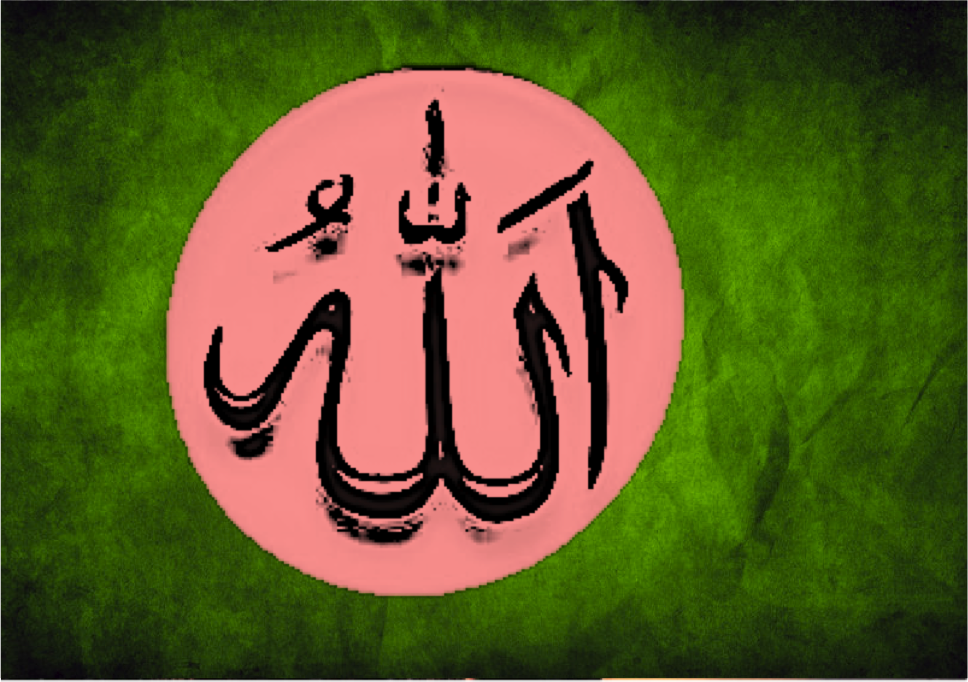


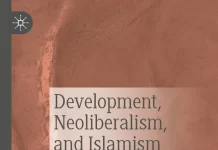
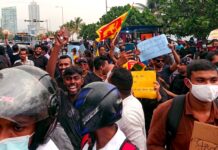




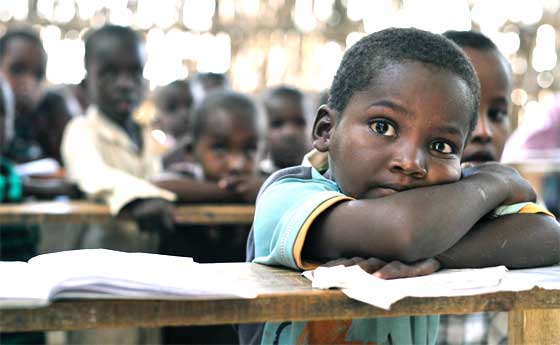
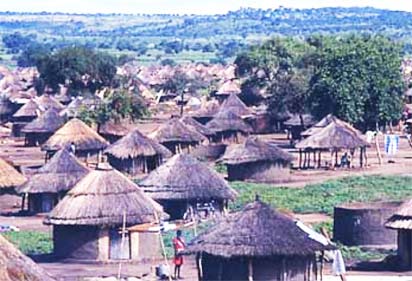
[…] Amahdiyya People Still a Target for Islamist Inquisitors in Bangladesh […]
[…] Amahdiyya People Still a Target for Islamist Inquisitors in Bangladesh […]